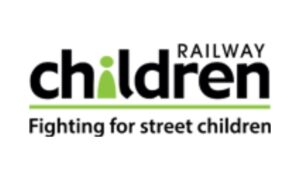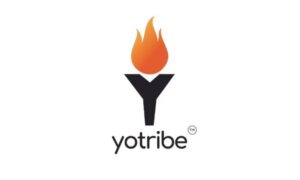300m Challenge by Katha
Support Katha | 300m Challenge
Book Donation & 300m support Campaign
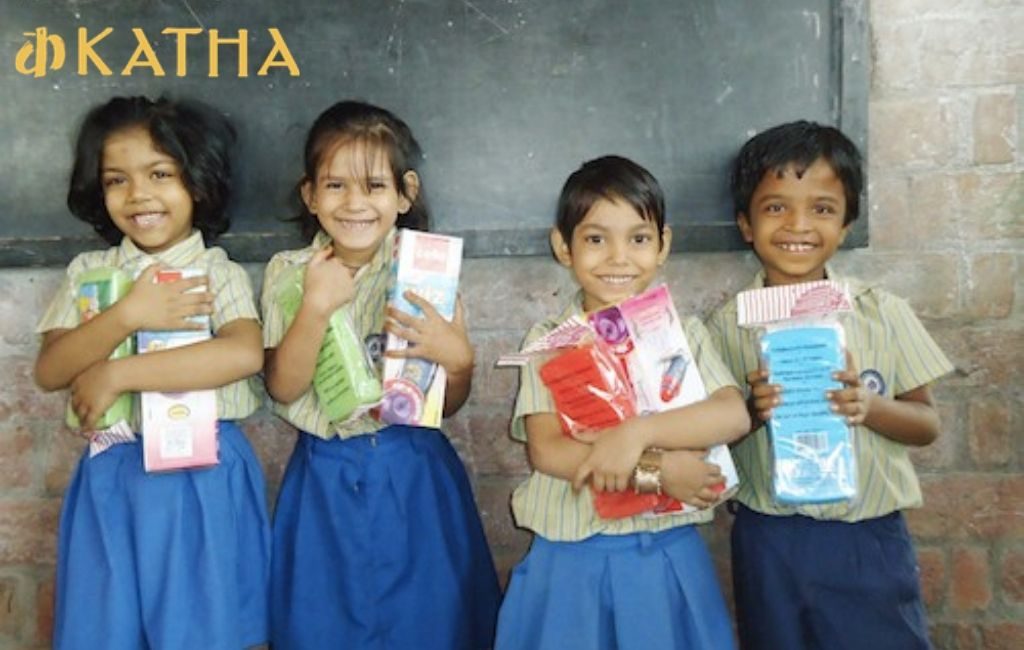
‘Sharing Stories’ loves to spread Humanity. As a part of its “Imagine – World Harmony through Writing ” campaign, we, at Sharing Stories, extend our support for ‘Katha’, 300m & Book Donation Campaign..
Please do support this cause!!!
*Sharing Stories does NOT charge any fees from this Fund Raising.
About this Initiative by KATHA.
It was not long ago when our building’s watchman came hurriedly to me – “Madam,” he said, “My wife wants to learn to read!” He looked more flabbergasted than happy about the fact. I asked him why, and he replied, with indignance, that a woman of 25 years of age had no business learning to read, especially with 2 young children. Household chores were priority. I wondered aloud – “But, why not?!” However, our conversation was cut short by some mundane task that our guard had forgotten to execute.
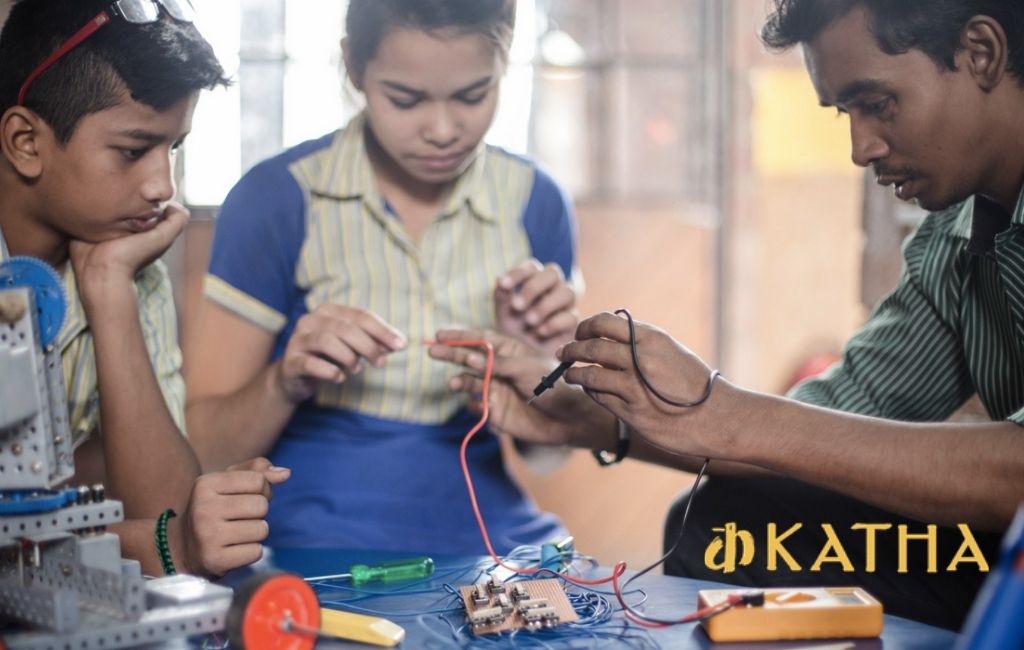
Our rich demographic dividend could (and should) serve as an important resource, but the important question remains — is education gifted its due place under the sun? As per the most recent relevant figures that we have access to, India has achieved a near-universal enrolment of children in schools and implemented a system of automatic passing till Class 5 (ASER, 2017). Enrolments in Class 8 have almost doubled – from 11 million to 22 million – between 2004-05 and 2014-15 (District Information System for Education, DISE, 2017). These are promising developments but the reality presents a rather different picture – 75% of students of Class 8 are unable to comprehend a Class 4 text (ASER 2017).
The identified, chief problems are rooted in the methodology of imparting learning, and lack of motivation.
So, what has reading to do with education? I remember when I began to place words together to read, I did so with relish, happy at being able to complete each sentence, and weaving the sentences into paragraphs that would culminate into a story, usually with a happy ending! However, the importance lay in the manifestation of a habit – a habit of reading voraciously, in an attempt to accumulate more words as if they were wealth, which they were – these very words grew into branches in the form of vocabulary that enriched the tree of writing, which serves as the crux of my career now. Having said this, it saddens me that reading, today, is a chore, a task that has to be executed, rather than being considered as the essence of education. The issue lies in the fact that reading is considered as ‘reading for learning’, rather than ‘reading for fun and meaning’.
What if you were to play with words and sentences and paragraphs, a new story could emerge, and imagine how many countless permutations and combinations could result in how many different stories? What if you were to learn 5 new words each day, and try and use them during the course of the day in some form or the other? What if you were to learn 1 word each day that could have up to 3 different meanings depending on the context of the sentence it is used in? What if you were asked to introduce yourself in a mere 5 sentences? All of these are some great practice tools for not only encouraging enhancing vocabulary, creativity and reading, but also serve as food for the mind – so vital, and yet so neglected. In fact, some of these form the basis for high-paying job interviews.

An interesting article in The Guardian (https://www.theguardian.com/books/booksblog/2013/sep/16/reading-improves-childrens-brains) reports – “…of the 17,000 members, 6,000 took a range of cognitive tests at age 16. We compared children from the same social backgrounds who achieved similar tested abilities at ages five and 10, and discovered that those who frequently read books at age 10 and more than once a week when they were 16 had higher test results than those who read less. In other words, reading for pleasure was linked to greater intellectual progress, both in vocabulary, spelling and mathematics. In fact, the impact was around four times greater than that of having a parent with a post-secondary degree.
Reading clearly introduces young people to new words, so the link between reading for pleasure and vocabulary development is expected. But the link between reading for fun and progress in maths may be more surprising. I would suggest that reading also introduces young people to new ideas. Along with teaching them new vocabulary, it helps them understand and absorb new information and concepts at school. Independent reading may also promote a more self-sufficient approach to learning in general…”
The ability to read has to be inculcated with loving care, like planting a sapling – it needs careful planning and execution, attention and care. Regular interactions with photographs, illustrations, alphabets, words et cetera have to be encouraged. Acquired abilities required for reading are mostly derived from the verbal and written use of languages in the immediate environments. Hence, the habit of cultivating reading is not a stand-alone process; it is a process that involves all stakeholders. It brings to mind an organization called Katha that has been creating reader leaders since 1988. Key distinguishing features of Katha’s education model are StoryPedagogyTM and Active Story Based Learning, in which teachers use a variety of techniques developed by Katha—rooted in the art of storytelling and the performance arts—to bring classrooms to life and creatively engage children in learning. Theatre, dance, music, sports, storytelling, and film are among the many tools teachers use. Katha’s model also brings community issues into the classroom so that learning is relevant for children and empowers them to become agents of change in their communities.
Says Geeta Dharmarajan, Founder, Katha –
“We empower children to solve pressing community challenges related to health, water, sanitation and environment. Katha’s education model rests on the belief that every child can bring to themselves a sustainable world with the help of enabling adults — families, teachers, communities – and a compassionate curriculum for life. In this holistic approach to education, we involve all our stakeholders — children, teachers, principals, and families of our children.”
Lakshmi is the youngest of five daughters. Though she received formal education only till class 8, her love for reading inspired her to learn on her own. Her General Knowledge and Current Affairs stand up-to-date, ‘on her finger tips’, all the time. Her inspiration – “…old, discarded books!” Lakshmi is now 22 years of age; at the age of 18, she started working as a maid, and now works as a receptionist in an office. Says Lakshmi – “One of the landlords would discard his kid’s school books for sale to the raddiwala. I begged him to let me have them, and he kindly agreed. The pictures, at first, captured my attention. I then began to recognize the alphabets, recall the words, build on them slowly by observing and listening to how these words were used. Some Apps are also available for free; they also helped. As my English improved, so did my job prospects. Today, I earn INR 17,000 per month and I am proud of the fact that I am self-made.”
Many like Lakshmi tutor themselves, with simple tools at their disposal – grit, determination, motivation and the will to make the best use of the resources they have at hand – the ambition to be something in their live serves them well too. Reading cannot be forced, it is a habit that has to be cultivated. It brings to mind Geeta’s words – “…reading for fun and meaning…”
As Maya Angelou once said – “Any book that helps a child to form a habit of reading, to make reading one of his deep and continuing needs, is good for him.” It is said that around 50% of our children, studying in primary schools, cannot read at grade level. It is a pity! Yes, it is, indeed! But what are you are me doing about it. How are you or how can you make a difference? Write in to me: 300m@katha.org and know more at: www.katha.org/300m
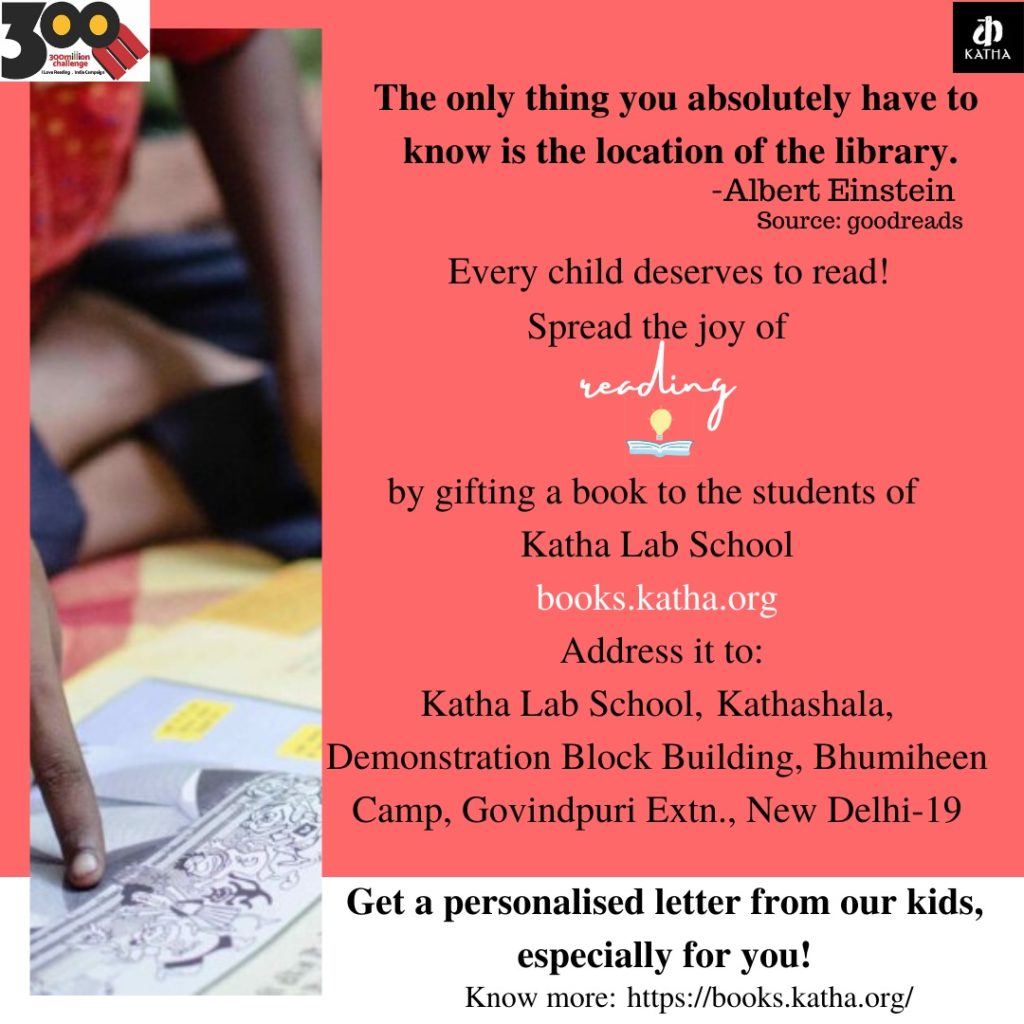
Discover marketing services, interviews & publishing tools at SharingStories.





